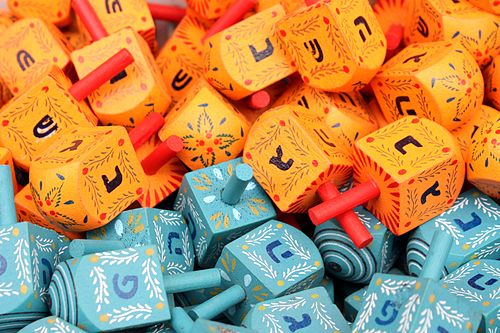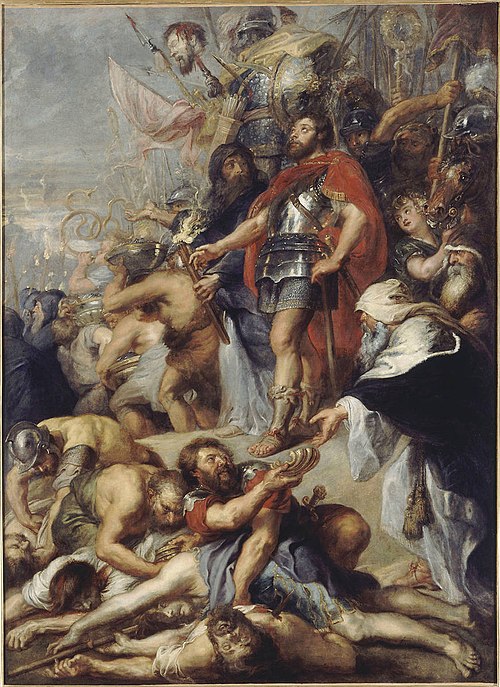Hanukkahnoun
(Judaism) an eight-day Jewish holiday commemorating the rededication of the Temple of Jerusalem in 165 BC
Hanukkah
Hanukkah (; Hebrew: חֲנֻכָּה, Modern: Ḥanukkáh, Tiberian: Ḥanukkāh; usually spelled חֲנוּכָּה, pronounced [χanuˈka] in Modern Hebrew, [ˈχanukə] or [ˈχanikə] in Yiddish; a transliteration also romanized as Chanukah, Ḥanukah, Chanuka, Chanukkah, Hanuka) is a Jewish festival commemorating the recovery of Jerusalem and subsequent rededication of the Second Temple at the beginning of the Maccabean revolt against the Seleucid Empire in the 2nd century BCE. It is also known as the Festival of Lights (Hebrew: חַג הַאוּרִים, ḥag ha'urim). Hanukkah is observed for eight nights and days, starting on the 25th day of Kislev according to the Hebrew calendar, which may occur at any time from late November to late December in the Gregorian calendar.
Christmasnoun
An annual church festival (December 25) and in some States a legal holiday, in memory of the birth of Christ, often celebrated by a particular church service, and also by special gifts, greetings, and hospitality.
Christmasnoun
period extending from Dec. 24 to Jan. 6
Christmasnoun
a Christian holiday celebrating the birth of Christ; a quarter day in England, Wales, and Ireland
Christmasverb
spend Christmas;
Christmas
Christmas is an annual festival commemorating the birth of Jesus Christ, observed primarily on December 25 as a religious and cultural celebration by billions of people around the world. A feast central to the Christian liturgical year, it is preceded by the season of Advent or the Nativity Fast and initiates the season of Christmastide, which historically in the West lasts twelve days and culminates on Twelfth Night.






































